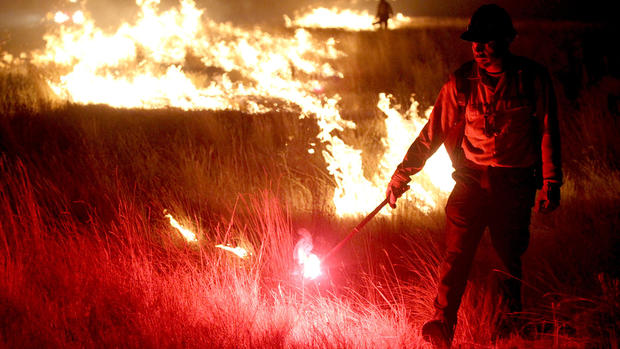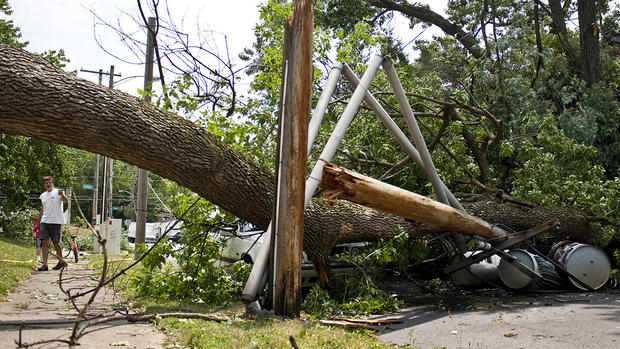Heat wave raises warning signs for climate change scientists
(CBS News) Heat in the summer is not news, but this summer is making history.
Over the last eight days, 2,400 high temperature records have been tied or broken. On the eve of the 4th of July, Americans are looking for independence from the weather.
Temperatures today climbed into the 90s and the 100s. They're really feeling it in those states hit hard by the fierce weekend storm in the east. Nearly 1.5 million homes and businesses there still have no electricity -- no power, no air.
Summer 2012: Glimpse of climate change effects?
Rising sea levels threaten East Coast
It's not just hot out there. It's record-breaking hot. This spring was the hottest since the government began keeping records in 1895.
150 million Americans have spent some portion of the past week under a heat warning. In tiny Norton, Kansas, last week, it hit 118 degrees -- hotter than Death Valley.
"I don't think we've seen any conditions like this before," said Kevin Trenberth, a scientist with the federally-funded National Center for Atmospheric Research.
Trenberth, who shared the 2007 Nobel Peace Prize for his work on climate change, said for most of the last century record high and low temperatures were about even. So far this year, there have be 15,055 record highs, but only 1,343 record lows. That ratio of about 11 to 1, Trenberth said, is some of the clearest evidence yet of climate change.
"Look out the window and right now I think you can see climate change in action," Trenberth said. "There's a component of climate change to the weather that we're seeing and we're breaking records."
The scientist said the searing heat is fueling New Mexico's and Colorado's biggest wildfires ever and is contributing to drought conditions that now cover more than half the nation.
No one can say whether climate change caused last Friday's ferocious storm that left more than 4 million people without power, but Trenberth said it probably made it worse.
"The environment in which all of the storms have occurred nowadays, all of the weather that occurs nowadays, is simply different than it used to be 30 or more years ago because of climate change," he said.
According to the U.S. Environmental Protection Agency, human activities -- particularly the release of carbon dioxide and other greenhouse gasses into the atmosphere -- are largely responsible for climate change.
Not all climate scientists agree. Climate change skeptics argue that too much is being read into short term data, and that extreme weather events even out over time and don't turn into major trends.
But a large majority of climate scientists say climate change is real, and if they're right, the extreme weather is only going to get worse.


